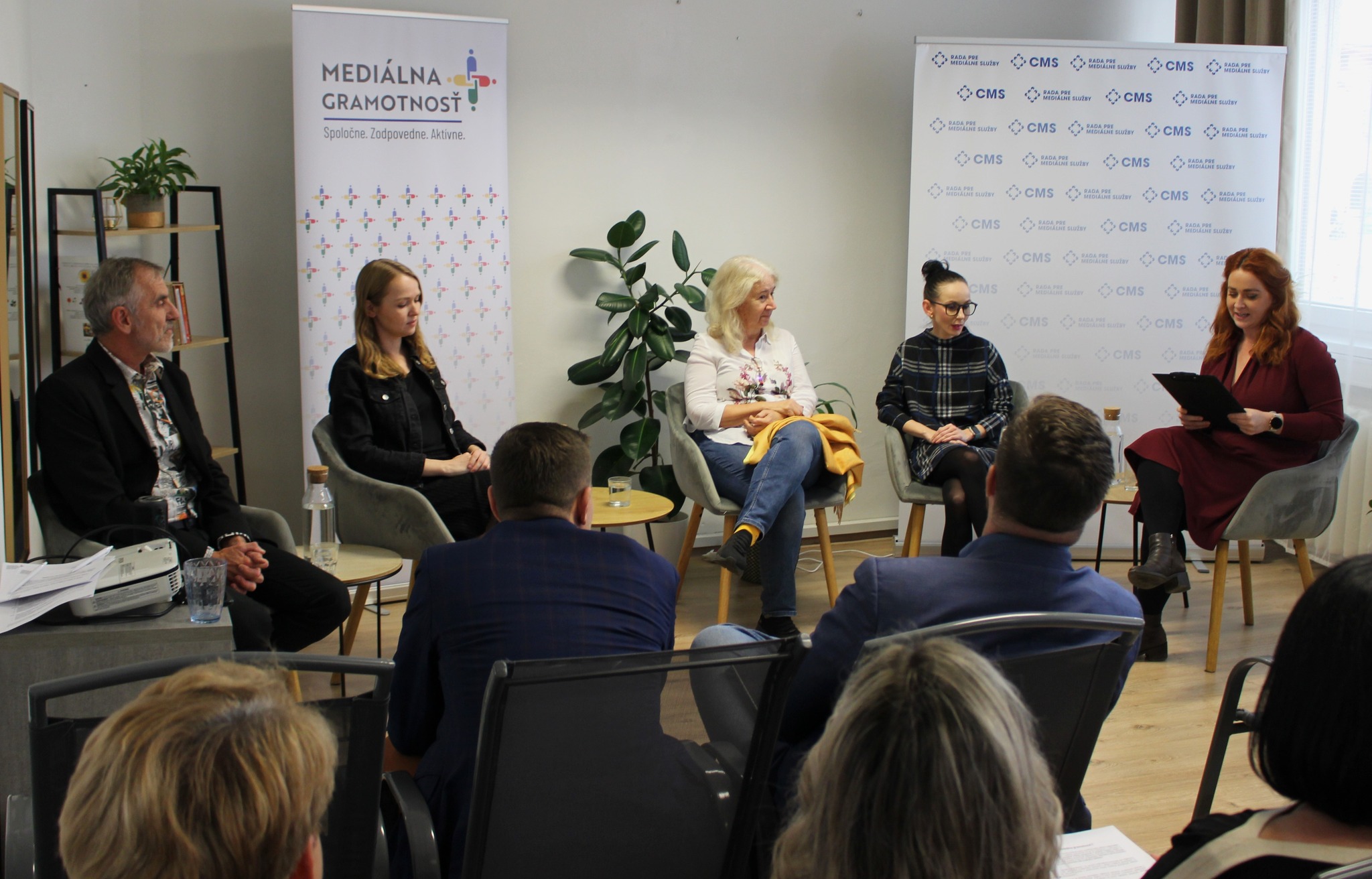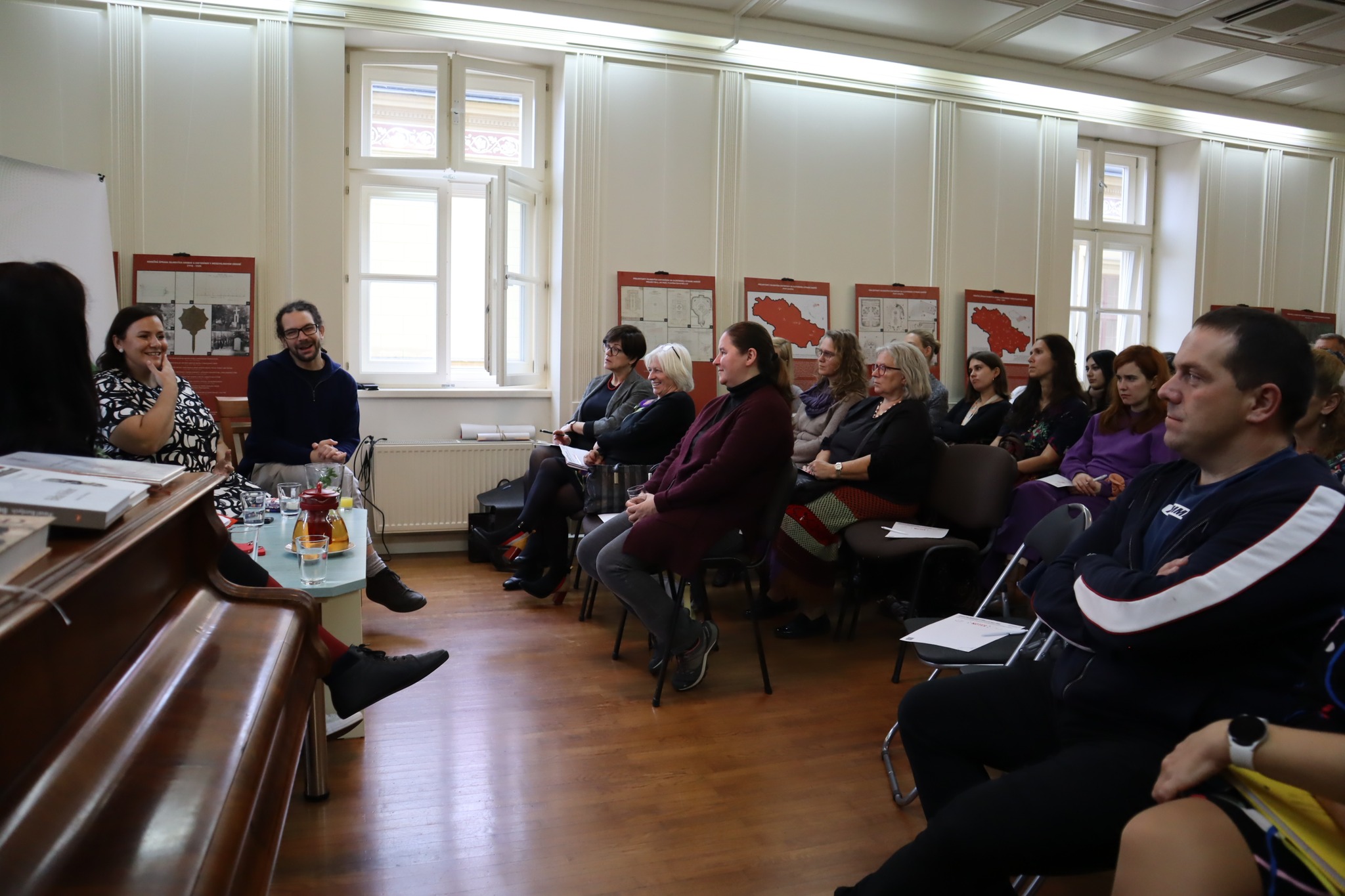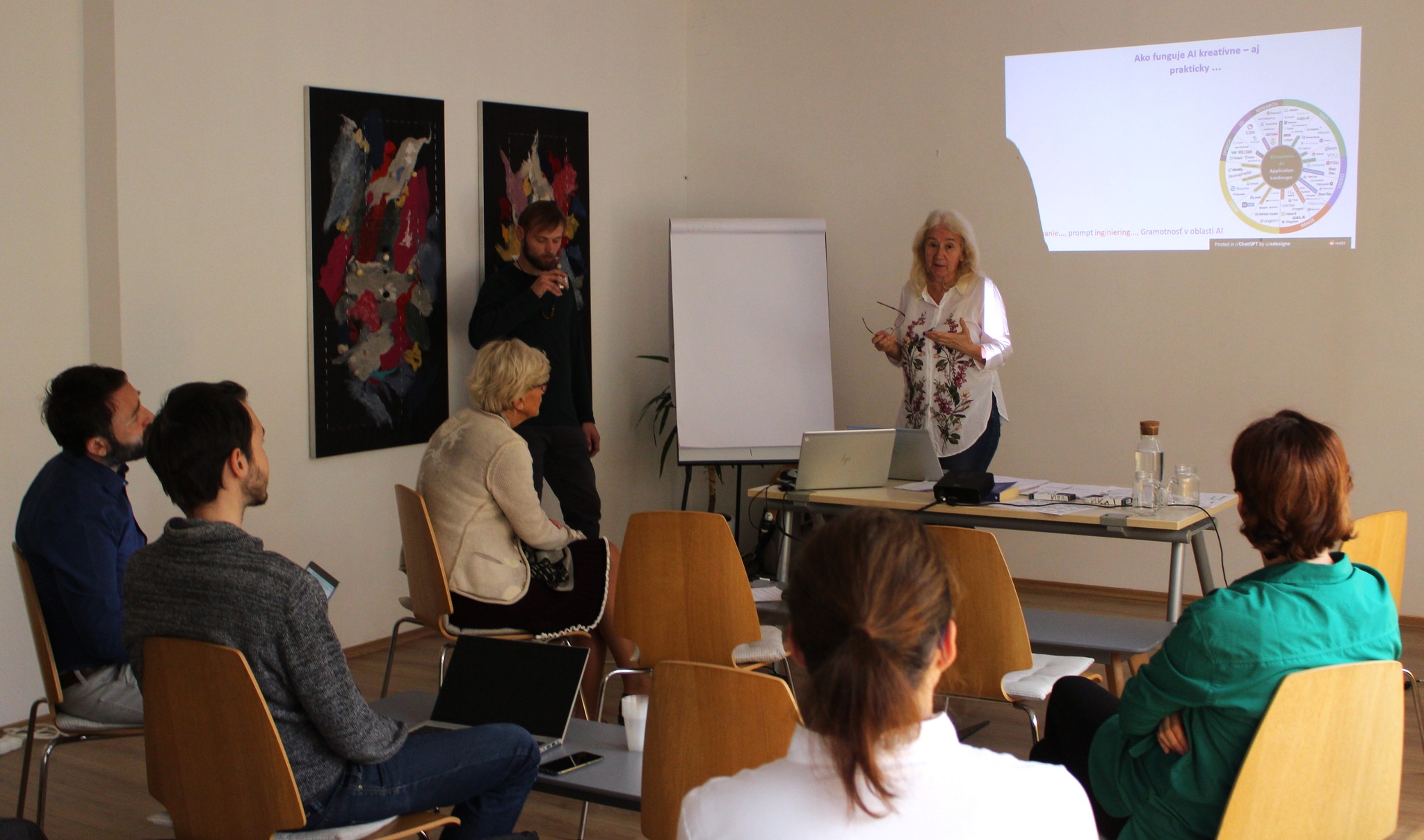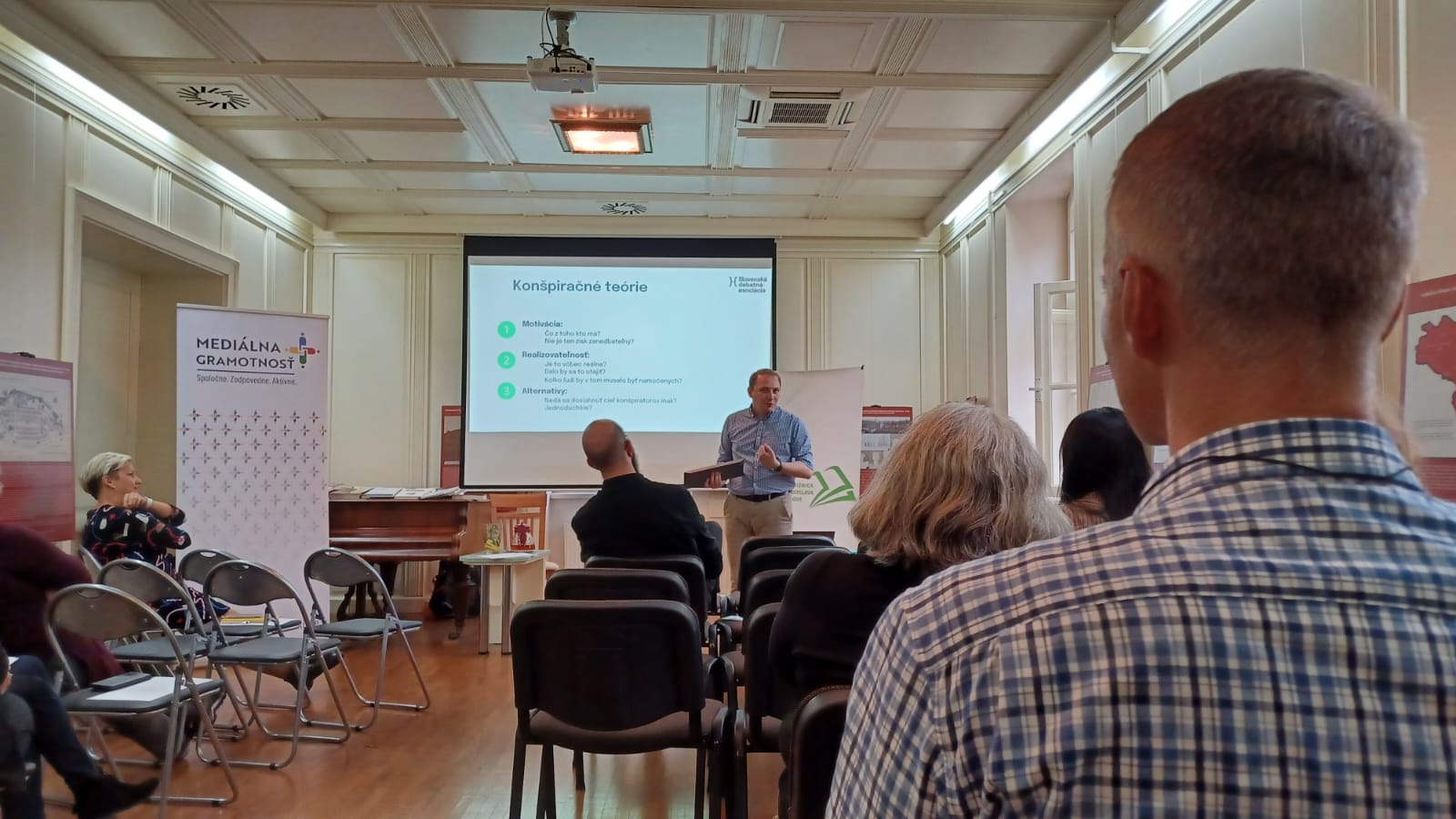Creating a safe and supportive environment in educational institutions and opening windows of knowledge. These challenges were also voiced during the conference "Offline influencers: a source of wisdom in the digital era", organized by the Council for Media Services and members of the Media Literacy+ platform.
The events took place on 24 October in Bratislava and 27 October in Prešov, aimed at educators, digital coordinators, and librarians. "We intended to motivate the conference participants to become agents of positive change in education in the environment and conditions in which they operate. Every change, even a small one, counts. At the same time, we wanted to inspire them through practical workshops on how they can apply the topics of media literacy to their pedagogical practice or work in libraries," said Stanislav Matějka, Head of the Analytical Department of the Council for Media Services, explaining the organizers' intention.

Both conferences opened with a panel discussion in which guests reflected on the skills needed for the 21st century. Psychologist Zuzana Juráneková, from the IPčko internet counselling centre, highlighted students' fears about preparing for future careers that may not yet exist. Those present agreed that flexibility, adaptability, creativity, and building individual resilience are among the most essential skills the educational process should promote. Eva Kalužáková, an expert on artificial intelligence, called for creating a supportive environment and training opportunities for teachers in new technologies. In the context of media education, Karel Strachota, director and founder of the educational programme "Jeden svět na školách" pointed out the tendency to narrow it down to disinformation. Martina Bolibruchová, director of Zmudri, agreed that it is sometimes difficult to bring these topics into schools because they meet with resistance from some educators and parents alike. They recommend making the issue of media and information literacy accessible through phenomena such as cyberbullying, sexting or addiction to online technologies, as parents are more receptive and open to discussing these topics.

The conference in Prešov took place on the premises of the P. O. Hviezdoslav Regional Library. Pavol Lacko from Demagog.SK highlighted the development of libraries in Slovakia and their openness and active approach to educating different age groups. In Prešov, the attendees also discussed using video games or interactive quizzes during classes. Silvester Buček from the organization Vĺčatá briefly presented the most common myths related to playing video games. Barbora Okruhľanská from the podcast Digital Parents pointed out the possible adverse effects of extreme approaches (complete ban and zero regulation) to using mobile phones in schools.
During both discussions, the attendees also addressed the issue of the role of educational professions in the 21st century. "By connecting to the internet, pupils gain access to a huge amount of information. That is why it is much more important to teach children how to work with information, to be able to argue their point of view, to teach them how to think critically, which is not easy, but not impossible," Anežka Richtáriková, a teacher from the Gymnasium of St. Monika in Prešov, expressed during the discussion. Discussants in Bratislava and Prešov also agreed that despite the rocketing development of artificial intelligence and technology, empathy and a personal and supportive approach to these professions are irreplaceable.
The Bratislava conference also included a presentation by the teachers of the Slniečko Private Kindergarten, which applies elements of media literacy to the teaching process. "We are happy that we could convey our experience to the attendees. We cannot neglect the pre-primary level of education when educating about media literacy. It is necessary to start from "us"; later, it may be too late," said Zuzana Čimová, the school's headmistress.

The second part of the conference consisted of workshops, during which participants could gain practical experience and inspiration. Lecturers from the Fablab workshop introduced the participants to artificial intelligence tools and how to use them in the teaching process. The workshop, organized by the Slovak Debating Association (SDA), took the participants through critical thinking and logical errors in reasoning that we often commit. In Prešov, the topic of disinformation was addressed. Director of the Slovak debate organization Ondrej Schütz guided participants on detecting and countering them. Karel Strachota gave educators tips on using educational posters on topics such as news reporting, image manipulation and the power of a newspaper headline. IPčko in Prešov drew the attendees into the issue of social networks and current internet trends among young people. Lecturers from the organization Vĺčatá presented the board game 112 to promote critical thinking. Those present could play it and, at the same time, provide valuable feedback to the game's authors.

The conferences have been held as part of the Media and Information Literacy Week initiative, set by UNESCO for the last week of October since 2011. The central theme of this year's event was Media and Information Literacy in the Digital Space. The initiative aims to strengthen, at both global and national levels, the capacity of individuals and societies to understand and critically assess information in today's digital age through various activities and to contribute to a better understanding of media and information challenges. At the same time, the week serves as an opportunity to draw the attention of and motivate people worldwide, including governments, educational institutions, media and civil society, to work together to improve media and information literacy.
Photo: Stanislav Šenc, Michaela Demková
